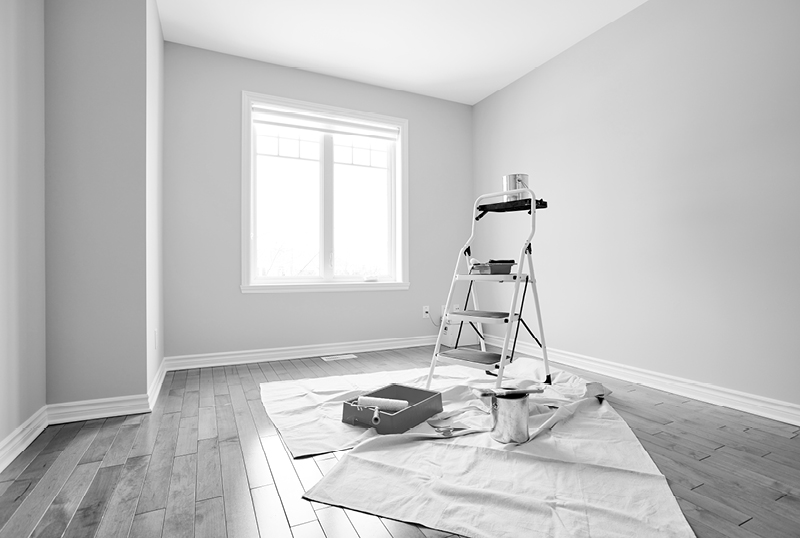While flipping houses has long been viewed by rookie investors as a means to make a quick buck, the reality of pulling it off with a profit isn’t that easy.
Flipping houses, also sometimes referred to as wholesale real estate investing, is a type of real estate investment strategy in which an investor purchases a property not to rent or live in, but with the sole intention of selling it for a profit. Some opt to renovate these types of homes to elevate their value, while others simply play the waiting game in the hopes of capitalising on property market increases. Like many other forms of investing, the aim of the game is to buy low, and sell high.
However, even for seasoned property veterans, flipping houses is risky business. The state of the market, access to finance, navigating tradespeople and even the type of property in question are all threads that make up this complex tapestry, and even one mishap can undo all of your hard work. However, that’s not to say that it can’t be done.
The Fundamentals Of Flipping Houses
In theory, flipping houses is all about a quick turnaround, and spending as little as possible on a renovation as a means to maximise profit. Seasoned flippers actively embrace this so that they can move onto the next ‘flip’, and start the process all over again.
As such, the concept of flipping houses and doing so successfully is certainly not for everyone. Flippers have to be ruthless, organised and ahead of the curve with as much knowledge at their disposal as possible, particularly when it comes to understanding property market trends and what’s actually involved with completing a renovation. If you’re a first timer who’s debating a house flip, a few of the basics generally include the following.
Crunch The Numbers – In the world of flipping houses, you need to have money to make money. Like it or not, the average renovation budget blows out by 80%, and the average slippage on timeline is a whopping twenty months. To minimise your exposure to unexpected surprises, make an in depth budget from day one, track it as you go, and above all – stick to it.
Weigh Up Finance – Flipping houses involves risk, and the worst case scenario is often having to hang onto the house in question – which usually involves covering the costs of doing so. Protect yourself by getting a home loan at the lower end of the interest rate market, and make financial decisions conservatively to avoid your exposure to risk.
The Right Buy – If flippers expect to make a short-term return, it means that “buying well” is crucial and walking away from any property that is not under-priced enough to make a healthy profit. Avoid getting caught up in a buyer frenzy, and consider enlisting the services of a property advisor to help you find the perfect match.
Know What Sells – Kitchens and bathrooms are always big hits in terms of determining what and where you choose to invest in when looking to renovate for profit. As a general rule, aim to spend 2% of the current property value on a new kitchen, and 1.5% for the bathroom, and avoid investing in risky additions such as walk-in wardrobes, wine cellars and high end materials.
An Emergency Fund – In just about all renovations, there will be a blow out. Sometimes it’s unexpected time delays, while in other instances it’s a surprise repair job. Even the most carefully planned budget often doesn’t account for unforeseen costs linked to flipping houses, so try and have a slush fund that you can’t touch unless it’s absolutely necessary.
Avoid Overcapitalisation – If you have spent $200,000 on the renovation itself, but only made a $100,000 profit on the bottom line of a sale contract, then your home renovation will have effectively cost you money instead of making it. Instead, experts indicate that you should allow 10% of your property value for your renovation budgets when flipping houses.
Even if you manage to purchase a home for $400,000, invest $50,000 via a renovation, and only manage to sell it for $500,000 – that’s still a profit of $50,000, or 5%. Rookie flippers should aim to start small and make conservative financial decisions to protect themselves against any unforeseen circumstances, before gaining the confidence and experience to potentially make bigger returns.
Should you be looking to sell your home or purchase a new one, enlisting the services of a free property advisor like ESPA can often be a game changer, and help you to make informed and educated decisions when it comes to the prospect of renovating to sell in 2022. As an example, your advisor would likely research the property, local agents, check the zoning, evaluate market conditions, and communicate clearly with you regarding all of your options – but where do you find one?
Take The Stress Out Of Selling Property
As a completely free service, Emergency Services Property Advisors provide property advisor services to Police, Fire, Ambulance and S.E.S personnel and their families right across Victoria.
Luke and the team at ESPA are passionate about providing support to some of Australia’s most valued public servants. Along with key industry insights, ESPA also works with a broad range of service providers linked to the real estate industry such as conveyancers, trades, legal practitioners and mortgage brokers.
If you are an emergency services worker looking to potentially buy or sell property in the future, please get in touch with Emergency Services Property Advisors today to discuss how we can turn your real estate dreams into reality, or call Luke directly on 0414 757 705.


